This post contains affiliate links. Please see our disclosure policy.
Confused about baker’s math and baker’s percentages in the sourdough baking process?
Sometimes you’ll see a recipe expressed as a percentage – it can be a little confusing, but once you understand the basics, you’ll be able to follow these recipes with ease.
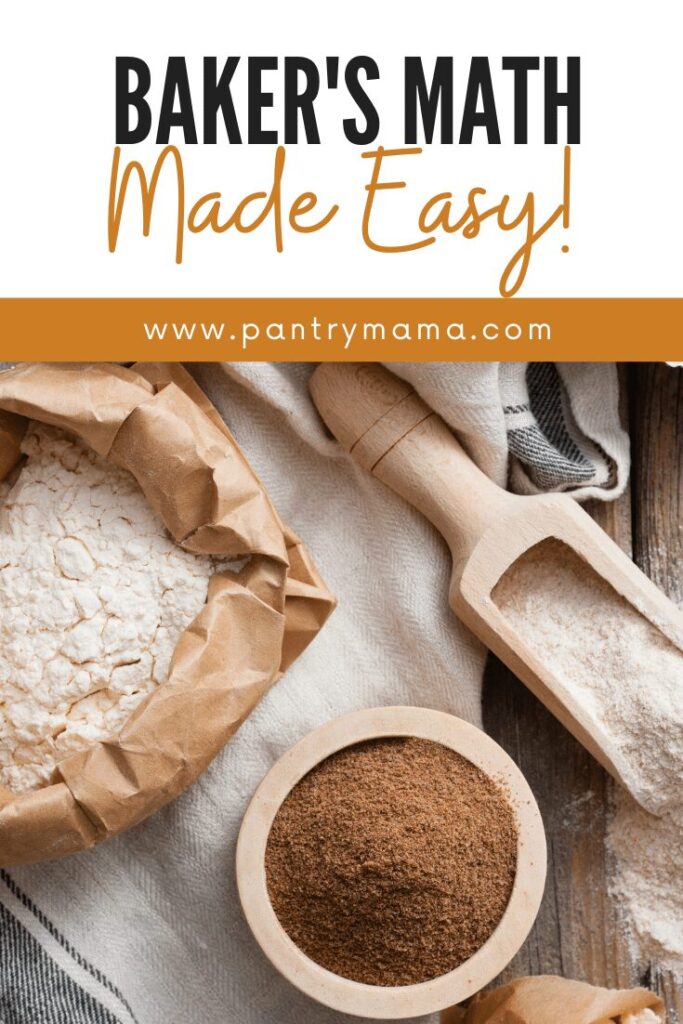
Baker’s Math / Baking Percentages in Sourdough Baking
Baker’s Math is a way of expressing a recipe so that it can be easily scaled up or down.
Have you ever looked at a recipe and wondered what it would look like with an extra 100g of flour?
Baker’s Math is an easy way to do these calculations – without losing your mind!
In Baker’s Math, you always use flour as 100% and then any other ingredients are a percentage of that.
This can make it confusing since the other ingredients can add up to more (or less) than 100%. But once you get your head around it, it can be really handy!
For example, my basic sourdough recipe, expressed as percentages would be –
Flour – 100%
Water – 70%
Starter – 10%
Salt – 2%
The calculation is as follows:
Water (350g) divided by Flour (500g) x 100 = 70%
You always divide the ingredient by the weight of the flour and then times by 100.
Easy, right? Really the only confusing part is that the ingredients (other than flour) will not add up to 100%. They are percentages in relation to the flour.
Scaling A Recipe Using Baker’s Percentages
Expressing a recipe in percentages means that you can use any weight of flour and scale the recipe up or down. So my recipe is:
Flour – 500g (100%)
Water – 350g
Starter – 50g
Salt – 10g
But if you look at the percentages, you can use say 400g of flour instead of 500g and then just use the percentage to convert the other ingredients. This is handy if you want to bake a smaller loaf:
Flour (100%) 400g
Water (70%) 280g (400g flour x 0.7 = 280g)
Starter (10%) 40g (400g flour x 0.1 = 40g)
Salt (2%) 8g (400g flour x 0.02 = 8g)
And you thought you’d never use math in real life applications lol.
Looking for an explanation into sourdough hydration and why some recipes use more water than others? Go here.
Use A Scale
If you really don’t want to have to deal with Baker’s Math – you can scales are a must have when it comes to sourdough, but these clever digital scales take it to the next level with their handy calculations.
Want more products that will make your sourdough baking easier? You’ll find my top picks here.
Further Reading
If you found this information helpful, you might enjoy these articles:
- Looking for the right sized banneton for your dough weight? You’ll find this banneton size guide handy.
- Need to scale your sourdough starter? You’ll find instructions for this here.
- Does the amount of starter you use really matter? There’s a full explanation of this here.
- Wondering what salt actually does in sourdough bread? This guide to the role of salt in sourdough will give you all the answers!

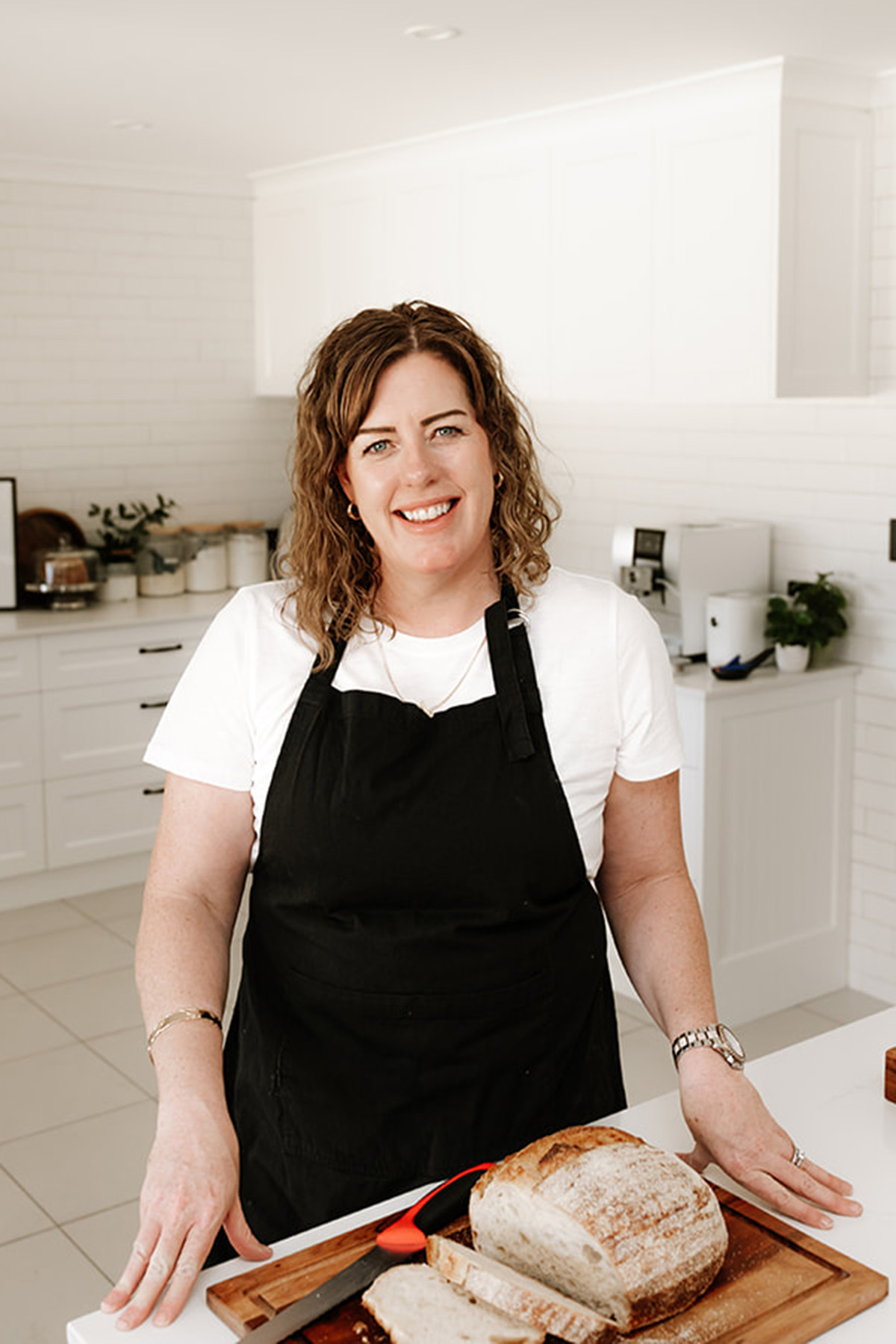
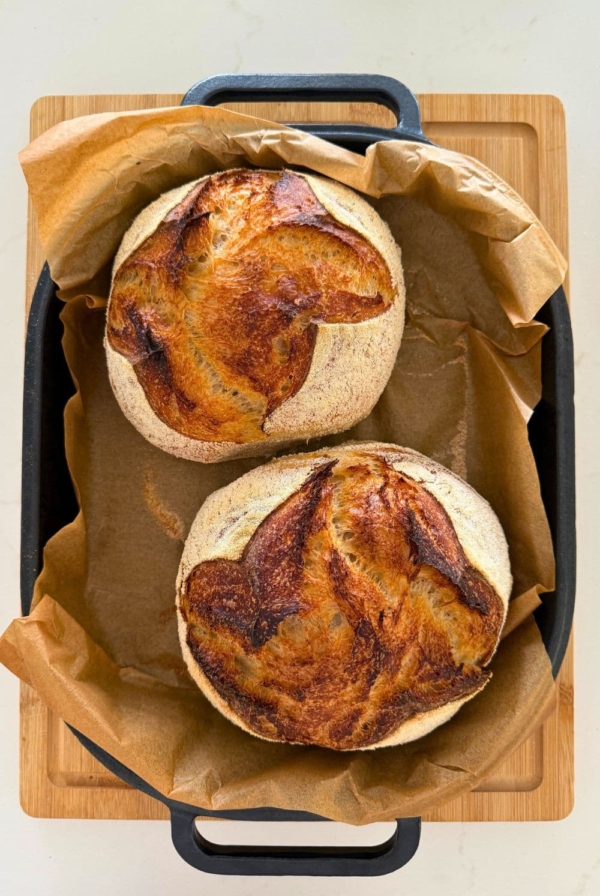
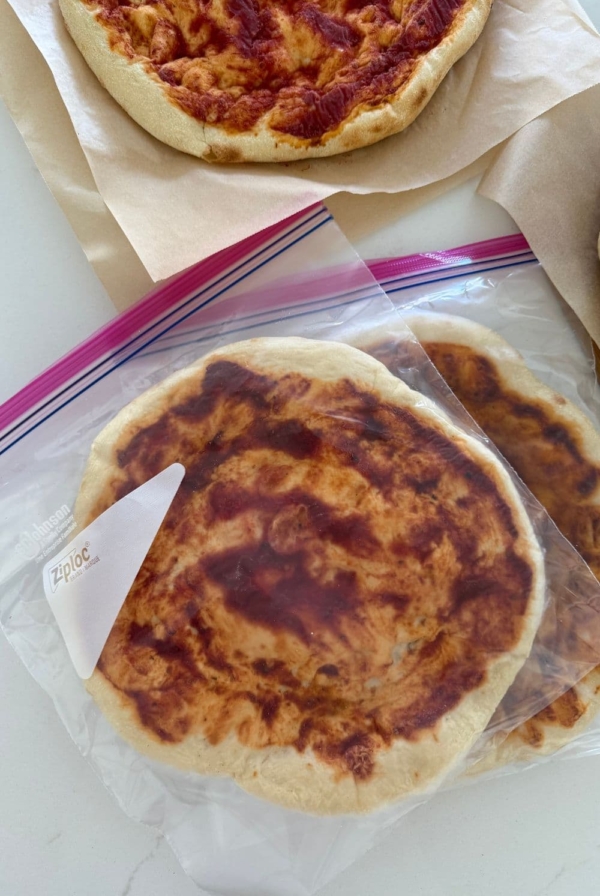
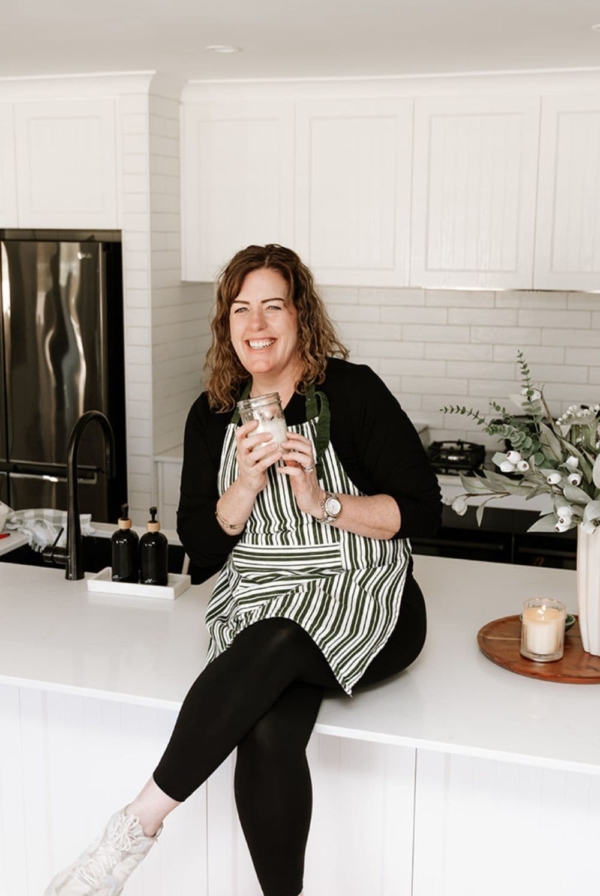
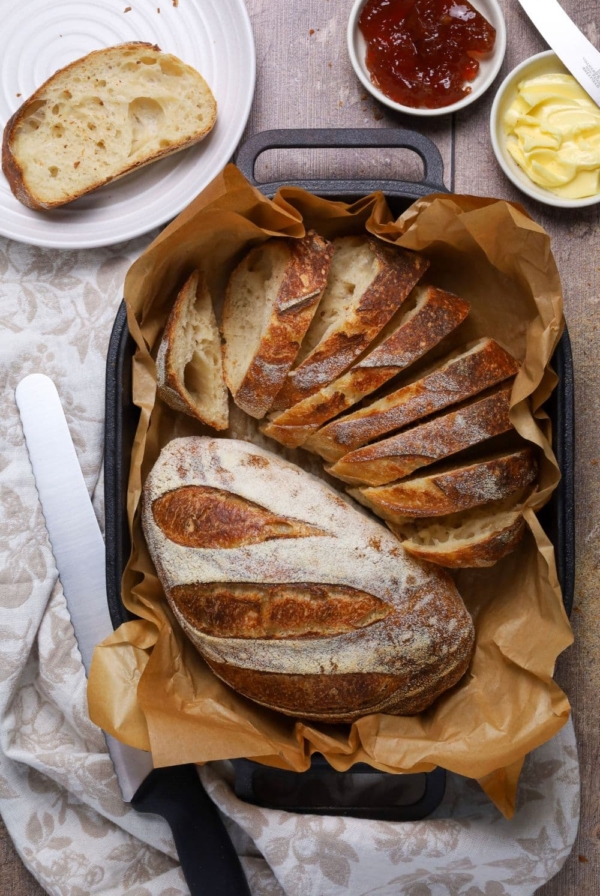




Thank you very much for explaining in such an easy way! I’ve never fully understood how to actually use baker’s math /percentages before, so this was very helpful.
Thank you so much for this.
According to my calculations 500 gr of flour and 350 gr water and 150 gr starter ( 75 gr is water ) I get 85% hydration . How did you get 73? Thanks
you need to add in 75g of flour from the starter too so it would really be 575g of flour, 425g water which is 73% 🙂
С
HOLA BUENOS DIAS.
ME PUEDES APOYAR CON ESTA PREGUNTA.
CUANDO DICES INICIADOR A QUE TE REFIERES?
DISCULPA MI IGNORANCIA
I never knew how bad I was at math. I’m still confused. Would you be able to help me with this recipe.
It calls for
225 grams butter, 250 g sugar, 280 g All purpose flour, 6 g baking soda, 2 g baking powder.
I live in the US could you send me these measurements and conversions using Cups and ounces? Thank you so very much!!
So my round banneton is 7 inches in width.
According to the guides on other pages that is approx 300-400g weight of dough.
How much starter, flour, water, salt in grams and ml do I need to make your basic sourdough bread using the banneton I have?
Thank you
Thank you so much for all your incredible information. Being new to sourdough…. I’m addicted!! Can you tell me if discard can be used in the place of buttermilk?
Generally no you can’t just replace buttermilk with discard as buttermilk contains fat whereas discard is flour and water, but if you let me know specifically which recipe you’re referring to I can help further xx